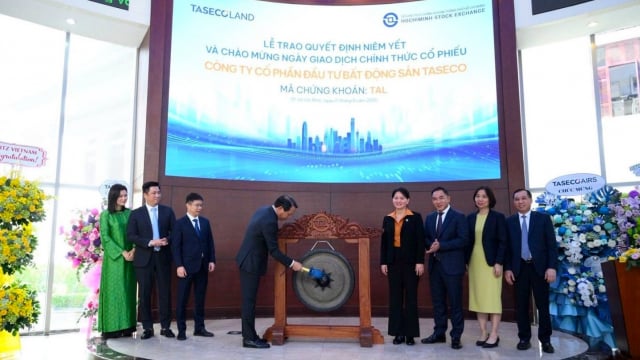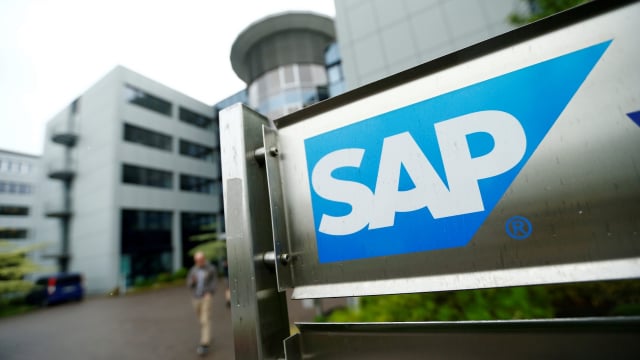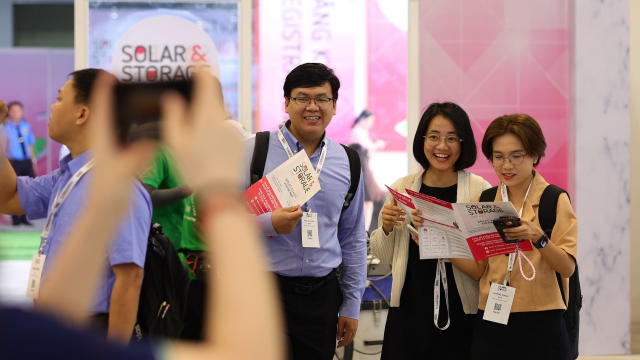Business
Eco-design for circular economy
Hoang Duc Vuong, head of the Recycled Plastics Unit at the Vietnam Plastics Association, stresses that in a good circular economy model, the design of product packaging must be suitable for the goals of collection and recycling, not only in treatmeant progress.
Extended producer responsibility (EPR) is an excellent base in forming a modern recycling industry, in which waste sources are put into environmentally friendly recycling facilities.
It also creates a motivation for businesses to change their production and sales processes to make waste collection, recycling and treatment activities much easier. The approach not only helps businesses reduce their costs, but also creates sustainable and long-term benefits.
However, this process is still slow in Vietnam because there is lack of regulations on product packaging design, for example coverage rate of marks and labels, or ink that must recyclable, biodegradable, nontoxic.
The result is that recycling activities are so difficult to scale up, because it is only done by manual work by separating each label from each the water bottle.
In addition, some many businesses want to reduce plastic waste by reducing the weight of the packaging, but Vuong noted that the method also creates difficulties for collecting and recycling, because lighter weight means less value for scrap metal dealers who have to work more to get daily income.
He also emphasizes that ecological design is not a simple thing. The standard one needs joint hands of recyclers and businesses to achieve both goals at the same time, that are enough information of products and environment friendly processes.
Vietnam also lacks clear and strict requirements issued by regulatory bodies to ensure a fair market for all parties.
At a forum on sustainable development held at the end of last year, lots of business leaders expressed their willingness to change packaging and product design towards sustainability.
In fact, members of Packaging Recycling Organization Vietnam (PRO Vietnam) have made improvements in their product and added eco-friendly factors.
For example, Coca-Cola switched Sprite from its iconic green bottle to a clear and transparent PET bottle to make it easier to recycle. With this important change in packaging design, it aims to boost the value of the packaging after use and drive-up recycling rates locally.
Suntory Pepsico Vietnam also removed the shrink film of its Aquafina bottle caps, saving 140 tons of plastic.
Nestlé Vietnam, another member of PRO Vietnam, is also one of the pioneers in environmental protection activities. It announced its commitment to make 100 per cent of its packaging recyclable or re-usable by 2025.
Towards a zero-waste future, its La Vie has constantly improved packaging towards fully recyclable packaging design, minimising the weight of plastic bottles and supporting a circular economy.
The role of enterprises in Vietnam’s net-zero emissions commitment by 2050
Michelin leads the smart mobility revolution with data and AI
Michelin is undergoing a strong transformation by applying AI and smart analytic, helping lead the smart, safe, and sustainable mobility revolution in the Industry 4.0 era.
LG Innotek secures $200 million IFC loan following revenue drop
LG Innotek Vietnam Hai Phong secured a $200 million IFC loan as revenue slows, aiming to expand camera module production while meeting sustainability targets.
Leading with empathy in Vietnam’s billion-dollar investment flows
For Koen Soenens, Sales and Marketing Director at DEEP C, empathy is a compass that guides major deals, the way a leader builds a team, and the ambition to create a sustainable industrial zone that carries a Vietnamese identity.
Taseco Land’s new logo marks a new growth trajectory
Taseco Land has shifted its listing to HOSE and introduced a new upward-pointing arrow logo - a visual statement of its strategy to raise capital, expand its land bank, and strengthen its standing in Vietnam’s real estate sector
SAP positions Vietnam as key R&D hub with €150 million investment
Located in the heart of Ho Chi Minh City, SAP Labs Vietnam is the second SAP Labs Network hub in Southeast Asia, following Singapore and is one of 20 countries that have SAP Labs globally.
Solar & Storage Live Vietnam returns, leading sustainability and innovation in energy sector
Solar & Storage Live Vietnam event has been running since 2017 and the 2025 edition will be the biggest yet.















.png)
.png)

























